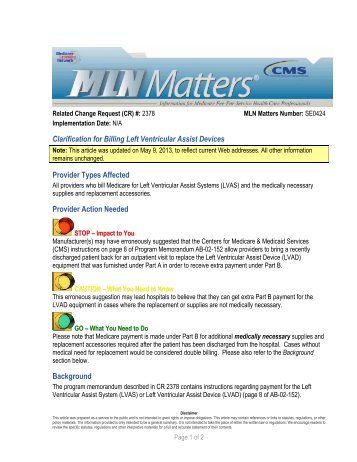

For the whole shipment, FOB allows the buyer to choose their own freight forwarder. If the shipping document mentions “FOB destination”, then the seller has to take the risk until the goods reach the buyer. Difference between DAP in payment terms and DAP in delivery terms. Please give us all details of export and import in hindi and English. I need to purchase products from china with ali baba company.
In case the freight is lost or damaged, the marine insurance company of the owner would come forward. The main difference between FOB and CIF contracts is the transfer of ownership and the responsibilities of the buyer and seller regarding freight and insurance. In FOB, the buyer assumes responsibility for these costs, while in CIF, the seller takes on the responsibility. It’s important to understand the difference between FOB and CIF contracts to ensure that you choose the best option for your business when conducting international trade.

As there are multiple sets of rules, and legal definitions of FOB vary from nation to country, the parties to a contract must specify which set of rules will apply to a shipment. I hope, I could explain about FOB terms of delivery used in international trade. Do you wish to add more information about FOB price in exports and imports?
Search Your Topic
FOB contracts require that the goods be loaded onto the shipping vessel at the port of shipment before ownership is transferred to the buyer. After that, the buyer is responsible for arranging and paying for all transportation costs. Here, the seller has the liability to pay for warehouse services, loading from the place of origin, inland transportation, custom, and terminal charges and loading the goods in the vessel. After the loading, freight charges, insurance, loading and unloading, transportation, customs clearance, import duties, and taxes shall be borne by the buyer. FOB broadly applies to commodities delivered by ship, but the phrase has subsequently been broadened to encompass all modes of transportation. International transportation contracts sometimes include shortened trade phrases like delivery time and location, payment, when the risk of loss moves from the seller to the buyer, and who pays for freight and insurance.
What does FOB pricing mean?
FOB is a shipping term that stands for “free on board.” If a shipment is designated FOB (the seller's location), then as soon as the shipment of goods leaves the seller's warehouse, the seller records the sale as complete. The buyer owns the product en route to its warehouse and must pay any delivery charges.
All the Quotations should be invited as on FOB Basis to avoid heavy demurrages now a days. FOB – Free on Board means that the seller delivers the goods at nominated port of destination and he is responsible to get clear all the formalities of Export and Handling over the goods to Airlines/Freight Forwarder. Buyer will pay only freight charges from seller destination to buyer destination . Price of packing +Forwarding + inland freight are already included in FOB price.
FOB Origin
Briefly, FOB shifts the risk of loss or damage to the buyer once the goods are loaded onto the shipping vessel, while CIF shifts the risk to the seller until the goods are loaded. Thus, Section 12 is the what is fob price charging section for levy of customs duty and the duty has to be levied as per the Customs tariff. While doing international trade it is important to know and understand the terms of the contract.
If you notice “FOB” on an invoice that came with your shipment, all shipping expenses have already been paid, and the word is just to let you know how your products were shipped. If you get an invoice before the seller ships the items, check the wording below the “FOB” mark to see who is responsible for the shipping expenses. If you have any queries, contact the seller to determine how that firm or individual defines the word. It is a designation which indicated that the liability and ownership of the goods have been transferred from a seller to a buyer.

For buyers who are unfamiliar with international trade or who cannot arrange their own shipping and insurance, CIF contracts are useful. CIF and FOB are two commonly used international trade terms that describe the responsibility of the buyer and seller in relation to delivery and transportation. The difference between FOB and CIF contracts is essential for understanding international trade.
Read More News on
Under an FOB contract, the seller’s responsibility ends once the goods are loaded on the shipping vessel, and the buyer assumes responsibility for the cost of freight and insurance from that point onwards. Ownership of the goods transfers from the seller to the buyer upon loading onto the vessel. In contrast, under a CIF contract, the seller is responsible not only for loading the goods but also for arranging and paying for the cost of freight and insurance up to the port of destination.
When purchasing apparel items, CIF is considered to be a costly option. The reason is the seller can leverage a transport carrier of their preference and liking, which may, in turn, charge the purchaser more to boost profit out of the transaction. The buyer is responsible for arranging and paying for the freight and insurance. As the seller arranges and pays for the freight and insurance, CIF contracts offer more protection to the buyer. After supplying of material or evidence of shipping documents, we can release the suppliers payment any amount of order value .
Compared to CIF agreements, FOBs are more reasonable and cost-effective as the purchasers enjoy enhanced control over insurance and shipping. By leveraging a CIF agreement, the seller bears the expenses, and they are held accountable until the apparel products reach the port chosen by the buyer. This article highlights the significantdifference between FOB and CIF. Both these types of agreement outline and mention the parties responsible for the apparel products.
Assume you’re a dry-fruits distributor named ‘ABC,’ and you’ve placed an order for 1000 jars of almonds from a company called ‘XYZ,’ which is based in Himachal Pradesh, India. Similarly, if the items are damaged or lost after they arrive at your warehouse, you will be held legally liable. Cost, Insurance, and Freight and Free on Board are international shipping agreements used in the transportation of goods between a buyer and a seller. Both contracts specify origin and destination information that is used to determine where liability officially begins and ends. Both apply to calculating the garment’s cost and the garment’s price. To the cost in terms of shipping from supplier to the manufacturer.
What Is The Meaning Of FOB Price?
However, for CIF contracts, the seller will be obligated to pay for insurance of the goods. The most significantdifference between FOB and CIFcontracts is the point at which the accountability and liability of the apparel items shift from the seller to the purchaser. Thanks to FOB shipping, the liability and accountability shift from the seller to the buyer whenever the shipment arrives at the facility or port. In order to transport the goods to the Los Angeles port, the manufacturer will arrange and pay for the freight. CIF contracts require the seller to arrange and pay for insurance, whereas FOB contracts do not.
- Hello sir, Very nice article you wrote, can you please explain me that if i want to purchase products from china mainland of 10$ via fob what will be the charges levied reaching to my destination in madhya pradesh.
- The seller and the buyer both decide the terms of the contract and modes of transportation.
- You may be responsible for covering expenses before your products get on board in some cases.
- Both terms specify the point at which the risk of loss or damage to the goods transfers from the seller to the buyer, another similarity.
- In addition to local charges mentioned in question 2, there might be other charges in export country.
Buyer or seller arrange to insure the goods and pay the cost of insurance, unless otherwise stated in their sale contract. Free onboard is an important term for participants who involves in global business. It is also useful in such contracts which include costly items which are vulnerable to theft and loss. The most crucial aspect of FOB is, that it helps in knowing which party owns the freight while still in transit.
What are the similarities between FOB And CIF Contracts
These are international shipping agreements used in the transportation of goods between a buyer and a seller. The price quoted by the seller is based on these shipping arrangements. When it’s FOB shipping, the buyer tends to bear all the risk of the damages or loss of the goods whereas in CIF shipping the seller is liable to meet all the charges or the loss or damaged products. If you’re familiar with shipping or exporting and importing products then you must be familiar with terms like FOB and CIF which in simple language means Free on Board and Cost, Insurance, Freight. The FOB and CIF shipping is considered international trade shipping and is the term, which is used for ocean and air shipping.
What is CIF and FOB price?
The abbreviation CIF stands for ‘cost, insurance and freight,’ and FOB means ‘free on board.’ These are terms are used in international trade in relation to shipping, where goods have to be delivered from one destination to another through maritime shipping. The terms are also used for inland and air shipments.
It is not advised to take risks with your international shipping that could cost you tremendously high. You can contact a proven third-party logistics like Shiprocket for the right advice on how to handle international shipments and consultation to understand the complexities of incoterms. Under this contract, the seller pays freight charges during transit. Once the goods are received at the buyer’s end they will pay the freight charges. Under the FOB shipping terms, buyers do not need to pay the higher fees for goods protection plans.
According to Foreign Trade On-Line, FOB should only be used for water-based transportation. One of the biggest advantages is that the buyer gets greater control over freight and freight costs. The buyer has complete control over the freight carrier, as well as the route and transit time. If the buyer does not opt for FOB, he will have no control over freight carriers or delivery times.
Nevertheless, the buyer is responsible for arranging and paying for the transportation of the goods from the port of arrival to their final destination. In the case of marine insurance, the word ‘free’ means that the seller would have an obligation to deliver goods successfully at a named place for transfer to the carrier. In most circumstances, the term “responsibility for the products” refers to the expense of transportation. If your invoice says “FOB ,” the shipping expenses are already included in the price. It’s possible that the vendor is footing the bill for shipping or that it was factored into the price as a cost to the customer.
Other common shipping terminologies are EXW, CFR, CIF, DAP, DDP, and so on. You are the seller of goods and you have contracted with the buyer and agreed to sell the goods on FOB, Mumbai price of USD 5300. So the seller meets all the expenses to carry the goods to Mumbai port and meet all expenses including customs clearance in Mumbai to get the goods on board to Airlines or On Board to Ship. As I have explained, all further cost to reach the goods to the buyer’s place has to be met by the buyer. The buyer nominates the shipping company or airlines and seller ships goods as per buyer’s advice. The buyer pays the cost of freight to the shipping company or airlines.
However, regarding theCIFshipping agreement, the seller is responsible for handling all expenses of the damaged, broken, or misplaced items. It signifies a transportation term used to indicate that the selling price of the goods includes delivery at the seller’s expense only up to a specified point. The responsibility for shipping is that of the buyer as soon as the goods leave the specified point. Both terms specify the point at which the risk of loss or damage to the goods transfers from the seller to the buyer, another similarity. FOB contracts transfer the risk of loss or damage to the buyer upon loading the goods on the shipping vessel, while CIF contracts transfer the risk of loss or damage when the goods are delivered to the specified destination.
So the seller must pay all the local charges in the port of load. Local charges are Terminal Handling Charges , Bill of lading fee, Load Off Load On charges and so on. The seller and the buyer both decide the terms of the contract and modes of transportation. The seller remains the owner of goods and pays any freight charges and then adds them to the buyer’s bill. The supplier has the sole responsibility for every aspect of the shipment until it arrives at the destination port at the buyer’s end. Additionally, the goods are insured until the goods arrive at the destination port.
The FOB shipping agreement is much more flexible than the CIF agreement. The reason is that the purchaser gets to negotiate a reasonable, lower price for the insurance and freight with any consigner of their choice. Moreover, several offshore traders desire to boost and enhance their revenue by purchasing FOB and selling CIF. CIF – Cost, Insurance, and Freight – is widely and typically used for large-sized deliveries shipped through waterways.
What does FOB mean in shipping terms?
Free on Board (FOB) is a term used to indicate when the ownership of goods transfers from buyer to seller and who is liable for goods damaged or destroyed during shipping. ‘FOB Origin’ means the buyer assumes all risk once the seller ships the product.
